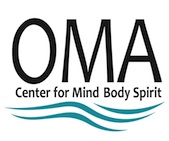Next Steps
1. We plan to continue these trainings, conversations, and workshops throughout the upcoming year.
Our goal is to make holistic methods accessible to all. We believe these events support efforts to deepen our networks of support while strengthening the resiliency of our region by acknowledging our shared struggles and celebrating opportunities for growth and mutual aid.
2. Through collaboration, deepen our collective wisdom about how to address, prevent, and mitigate adverse experiences, trauma, and abuse.
These events, in connection with others, are intentionally designed to bridge communities throughout the region and to connect mental health practitioners, community organizers, political leaders, physical health practitioners, integrative and holistic health practitioners, researchers, public policy advocates, the public health community, individual community members, and educators as a way to bring multiple voices into connection and to deepen the wisdom of the group. We believe that theory and practice are one, and that no theory of trauma can stand apart from understanding and listening to the lived experience of individuals.
3. Call policy makers, institutions, and health practitioners to take action in addressing trauma prevention and care in educational settings as a collective public need.
We will outreach community leaders and public officials in trauma-effected communities, inviting them to share their insights and develop action plans implementing holistic health treatment. OMA’s mission is to provide holistic wellness services and education to all people regardless of income, and our holistic and mental health practitioners aim to partner with trauma-effected communities to help deliver these services where they are needed. It is our hope that these events will instigate not only action plans but funding streams to support vibrant mental and holistic health in our region in order to break cycles of abuse, violence, and human suffering.
4. OMA is planning OMA Presents: A Trauma Symposium for the Healing of All Generations. Leading up to the symposium are four community-based “Trauma Conversations,” the first of which occurred on April 24, 2018 at Manchester Elementary School. These conversations are designed to break silences and create safe spaces for exploring trauma at the individual, family, and community level. The community Trauma Conversations also build our audience for the Trauma Symposium, as with each event we will develop networks of individuals interested in exploring trauma care further.
–October 2018, Community Trauma Conversation #2
–March 2019, Community Trauma Conversation #3
–May 2019, Community Trauma Conversation #4
–Fall 2019, Three-day Trauma Symposium
Objectives
- Collaborate with existing organizations and individuals to provide all adults, educators, caregivers with a set of skills to facilitate the development of compassionate awareness of various types trauma.
- Support educators, childcare providers, and individuals with knowledge useful for recognizing and understanding the symptoms and manifestations of trauma in youth.
- Through collaborative conversations and learning sessions, share best practices for the teaching of holistic and accessible skills that support the healthy development of mind, body and spirit in our youth.
- Share accessible and holistic skills individuals can use to support youth in their ability to understand, cope, and heal from trauma. In particular, we will support adults in developing deep breathing practices, mindfulness practices, emotional freedom techniques, strengthening conflict transformation skills, building skills that foster supportive relationships with adults and with youth, and supporting youth in developing resilience and social and emotional intelligence.
- Identification of needs and plan for systemic change to support all youth in their ability to move from surviving to thriving.
- Development of guidelines and protocol that support the accessibility and implementation of best practices that promote and cultivate resiliency in youth.
- Support, highlight, and integrate community programs and resources currently existing in Southwestern Pennsylvania.
